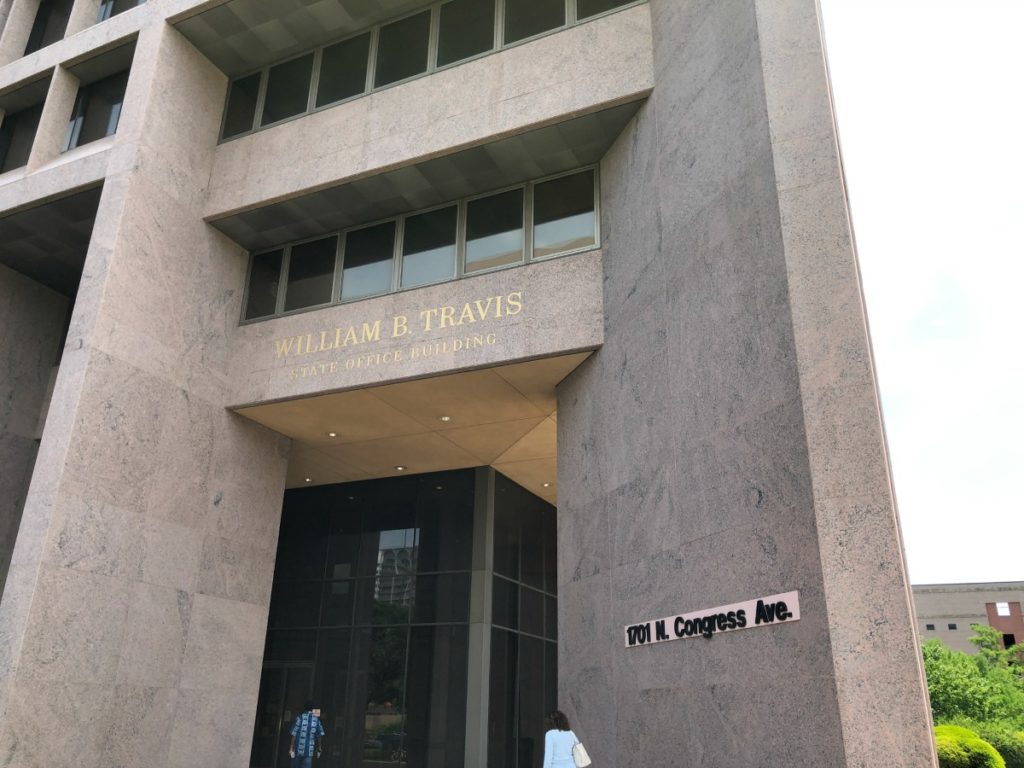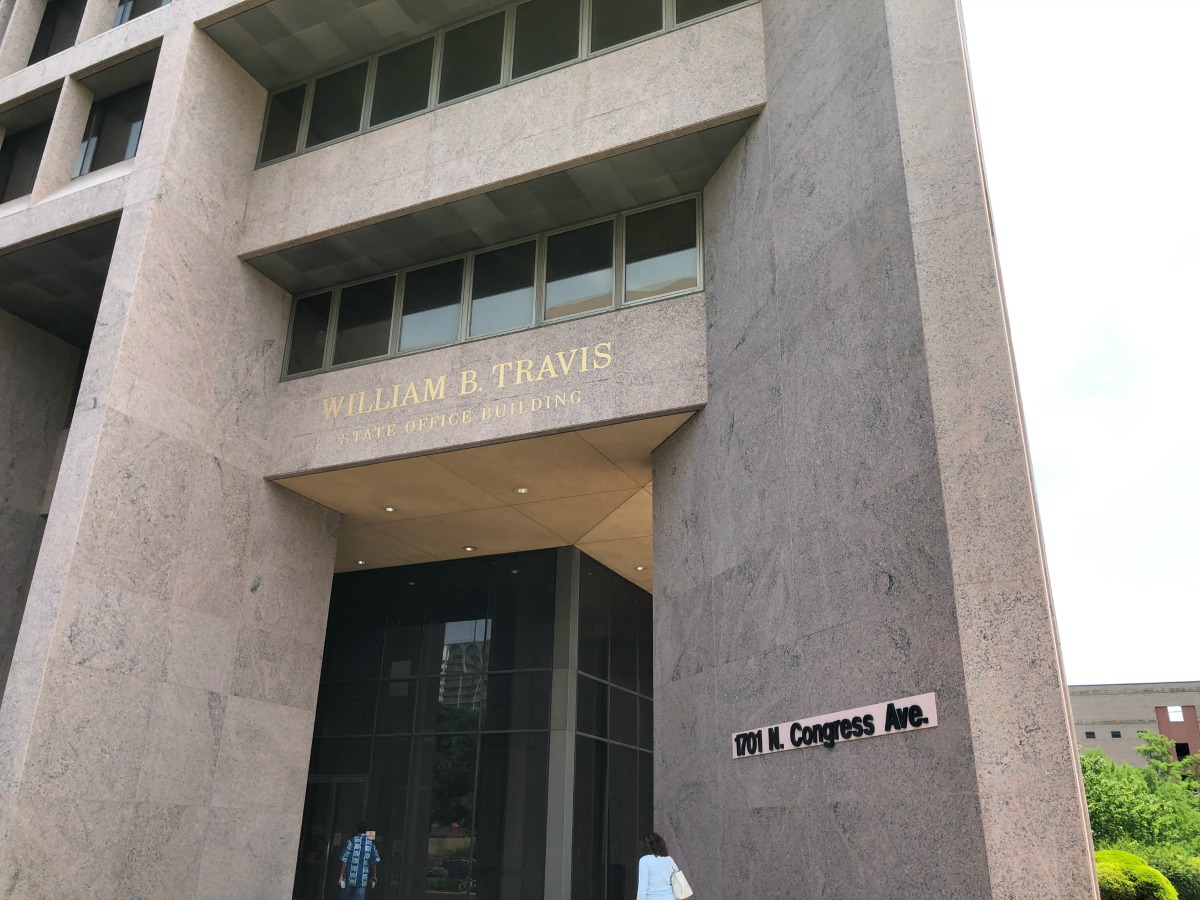Note from SA Charter Moms: We are proud to share guest posts from hallmonitor covering San Antonio’s public schools.

Everything you thought you knew about school finance is about to change. And by “you” I mean most Texans, who know very little about school finance. And that’s how much is likely to change as a result of the governor’s Commission on Public School Finance—very little.
In September, the public saw the recommendations of the Expenditures working group. These members of the commission had been tasked with revisiting the state’s notoriously complicated and inefficient school funding formulas.
They recommended some tweaks— taking out some outdated adjustments for the size and location of some districts; increasing the baseline per pupil funding; adjusting some of the weights that generate additional funds for special education, low income, career training, and other services.
Balanced budget hawks will be happy to know they did it without adding a single new dollar.
Educators can breathe a small sigh of relief because at least no one is recommending any kind of insane decreases in spending. A commission like this could have just as easily come back with a plan to convert the entire system to corporately sponsored workforce training camps or agrarian one-room schoolhouses.
The initial findings of the working group were pretty neatly tied to the priorities of the Outcomes working group—the group of commission members who, based on the testimony of educators over the past nine months, have come up with a set of priorities and goals for Texas schools. The recommendations included incentives for third graders reading at grade level and students graduating “college ready.”
(Aside: as clear as those priorities should be, linking funding to them is, in my opinion, totally unnecessary. I have yet to visit a school that is not obsessed with third grade reading or college readiness. And I’ve visited a LOT of schools. It seems like taking something they are trying in earnest to accomplish and adding a cash incentive invited shadiness and warped school culture. But that’s my opinion, and I’m neither an educator nor a legislator.)
Like any reshuffle, the commission’s recommendations would create new winners and losers. Someone was benefitting from each index, each adjustment. Each winner who becomes a loser is bound to throw up barriers when it comes time to actually draft legislation and garner votes.
Some of the winners and losers won’t even be clear right away. Bills like SB 1882 (which allows certain turnaround campuses to partner with charter networks and be funded as such) and HB 731 (which allows Brownsville ISD to reallocate funds from students who graduate early to fund pre-K) are tied to particular funding formulas, and it’s unclear what will happen if those formulas change.
It’s also important to remember that once school finance leaves the commission, where it has been relatively isolated from political interference, it’s likely going to be right back where it was, hostage to other agendas. Any earnest recommendations that become filed as legislation are going to be diluted and amended beyond recognition.
One discussion at the Expenditures hearing served as a particularly salient reminder that there are other cooks in this kitchen.
George P. Bush’s General Land Office is in a bizarre little spat with the State Board of Education. A $190 million spat.
A couple of weeks ago, State Board of Education Chair Donna Bahorich posted a letter from the SBOE to the land office asking them to reconsider their decision to send $600 million from the Permanent School Fund (a huge land endowment that partially funds Texas education) to the Available School Fund (money that can be spend on public schools, like the checking account), while sending no money to the State Board of Education.
I know what you’re thinking: classic dick move.
By law, $600 million is the maximum distribution from the PSF (land endowment) to the ASF (the checking account). The land office raised the payout from last year to hit the maximum.
In the past, to get more money into the ASF (checking account), the land office has sent funds to the State Board of Education. The board puts almost all of that money into the ASF (checking account), and it’s just one more of those weird little quirks of dealing with a 150-year-old constitution.
The only other place the State Board of Education spends that money it gets from the PSF (land endowment) is the “instructional materials allotment”—or, textbooks and software. Districts can use their regular budgets to purchase textbooks and software, but the special fund just for textbooks and software made it more likely that they would be able to make those purchases regularly. No risk of the money being spent on personnel, buses, enrichment trips, etc.
Some might say that the State Board of Education is panicked because without putting that money aside for instructional materials, they won’t be able to satisfy powerful textbook and software vendors like Pearson and McGraw-Hill, who have a lot of influence on the Board.
Whatever the motive for Bush’s withholding and the Board’s outrage, the fact is that current distribution from the PSF (land endowment) comes up $190 million short of the current funding.
And that’s not going over well with anyone. Not even Republicans, who have at various times in the commission hearings stopped just short of suggesting that we pass out slates and sticks of chalk and call it a day.
“I’m concerned about it,” said Sen. Paul Bettencourt (R—Houston), who is no big spender himself. “The net result is that we’re going to have less money. So I question this decision right from the get-go.”
The statutes and laws that govern the PSF (land endowment) are dense, if not entirely opaque.
It doesn’t seem to be clear to anyone on the commission exactly what Bush and the land office are up to. But Bush did make it clear, in a letter of his own, that he was not reconsidering his position.
To which Bettencourt said,”I think everybody needs to reconsider what’s best for all Texas school children.”
The thing is, with the commission coming back with all kinds of ways to break even, school finance is more vulnerable than ever. The reality is that they were told they needed more money. Not reorganized money. Creating losers in a climate of scarcity makes the whole thing politically toxic, and more likely to fail, leaving it vulnerable to the whims of folks like George P. Bush.
Originally published as “Texas Commission on Public School Finance: all that for nothing?” Hall Monitor, September 29, 2018
Read more:
- “[Hall Monitor] Texas Commission on Public School Finance: Sophie’s Choice,” San Antonio Charter Moms, June 13, 2018
- “[Hall Monitor] Texas Commission on Public School Finance: The Big Squeeze,” San Antonio Charter Moms, April 30, 2018
- “[Hall Monitor] Texas Commission on Public School Finance: The Road to Byzantium,” San Antonio Charter Moms, March 29, 2018
- “[Hall Monitor] Texas Commission on Public School Finance: Time Is Money . . . and Some Kids Don’t Have Either,” San Antonio Charter Moms, March 21, 2018
- “[Hall Monitor] Texas School Finance Commission: You Get the Teacher You Pay For,” San Antonio Charter Moms, March 16, 2018
- “[Hall Monitor] Texas School Finance Commission: Rough Equity,” San Antonio Charter Moms, March 15, 2018
